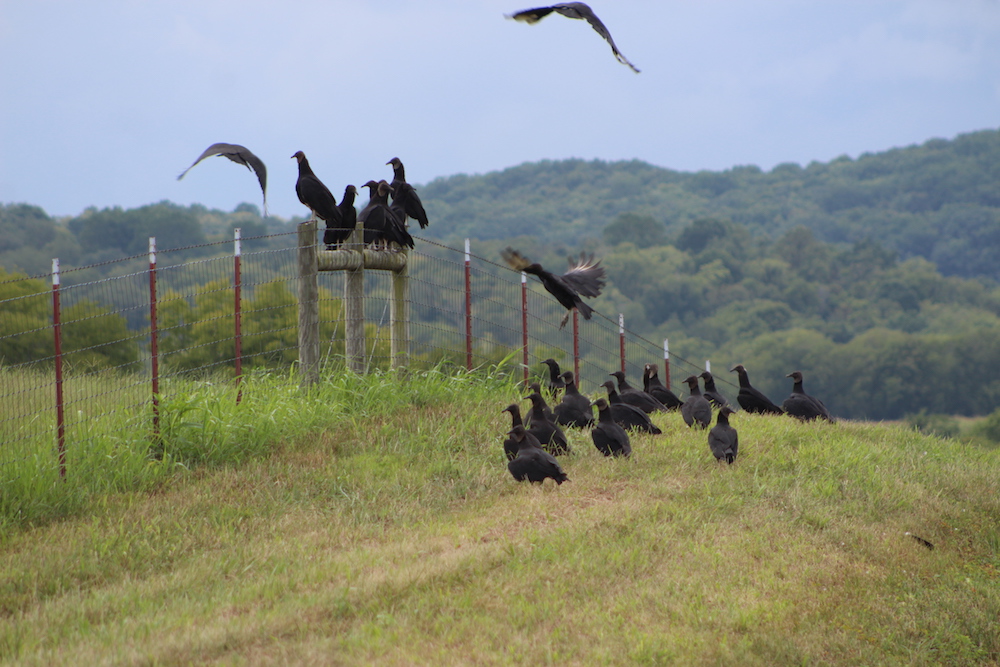Main Content

As scavengers, vultures play a critical role in nature’s clean-up crew and pose no threat to crop production in the Garden State. However, farmer conflicts with vultures can arise when Black Vultures prey on newborn livestock, or when problems associated with vultures roosting around the farm become a nuisance.
In fact, nuisance vulture activity on a Burlington County horse farm was the subject of a recent call to our office. Vultures began roosting at the farm after two deer were struck and killed nearby. The main problem was that vultures began perching on the horse water troughs, leaving their feces and regurgitations in the horse drinking water below their new perch site.
Vultures are Federally protected birds under the Migratory Bird Treaty Act, which is administered by the U.S. Fish and Wildlife Service. There are two species of vulture that are native to the United States – Black Vultures and Turkey Vultures – both of which we host year-round in New Jersey. For advice on how to disperse these nuisance vultures, we reached out to the state office of the USDA-APHIS Wildlife Services to speak with one of their wildlife biologists.
The primary recommendations to disperse the new resident vultures were deterrence and exclusion. Some effective strategies such as removing the water source or adding a motion-activated sprinkler could not be employed in this unique situation, as the horses live outside 24/7 and need to maintain access to the water. There were four main recommendations:
- Feed barn cats indoors
- Cat food can be an attractant for vultures
- Harass the vultures constantly whenever they are present (early morning, late evening)
- An air horn is recommended but may not be safe to use around certain horses
- Spraying with a strong garden hose is an alternative
- Hang scare-eye balloons and mylar/reflective tape above water
- Vultures dislike the movement and reflection of these deterrents, but horses may also be deterred from the trough
- Hang a vulture effigy
Hanging a vulture effigy in the open is one of the most effective strategies for deterring vultures. Artificial effigies, with no real feathers, can be purchased online and no permit is required. Refer to this USDA-APHIS publication on ‘Using Effigies to Disperse Nuisance Vulture Roosts’ for additional information on how to hang the effigy. If you would like to make your own effigy, the University of Kentucky has developed instructions for effigy fabrication from a horse stall mat.
For a list of sources to purchase effigies, reflective tape, and other bird deterrents, see this list assembled by USDA-APHIS WS. This is not a complete list of sources.
If an artificial vulture effigy is not effective, USDA-APHIS Wildlife Services has the appropriate permits to obtain a vulture carcass and hang it at your site. This type of assistance is offered with a fee for service. To inquire about this service or for additional assistance, contact the NJ office of USDA-APHIS Wildlife Services at 908-735-5654.